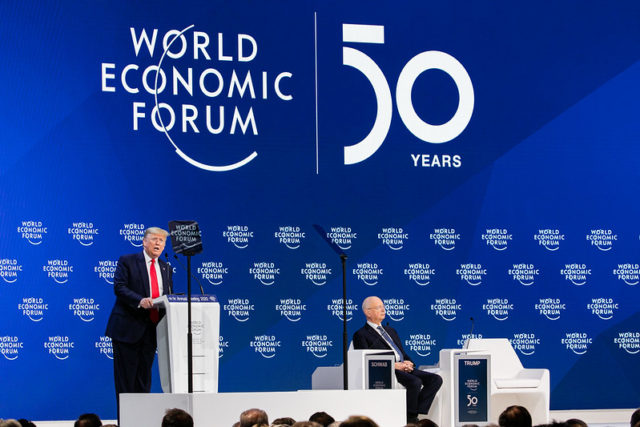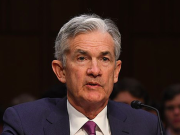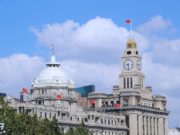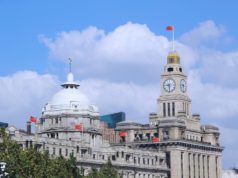
IMF Revised 2020 Global GDP Forecast from -3% to -4.9%
26th June 2020 | Hong Kong
The International Monetary Fund (IMF) has released the IMF 2020 Global Financial Stability Report (June Update) and the World Economic Outlook Report (2020 June), revising the 2020 Global GDP Forecast from -3% to -4.9%, due to the worsening recession caused by the COVID-19 pandemic.
” IMF Revised 2020 Global GDP from -3% to -4.9% “
The IMF also released statements on the improved financial market condition, a disconnect between financial market and real economy, and guidance for central banks, policy makers, lenders and the global economy.
View the latest IMF 2020 Global Financial Stability Report (June Update) and the World Economic Outlook Report (2020 June) below:
World Economic Outlook Report June 2020
In April 2020, the IMF World Economic Outlook (WEO) had forecasted global GDP in 2020 to decline 3% due to the COVID-19 pandemic outbreak. The latest revision represents a further 1.9% decline, from -3% to -4.9%.
Global Financial Stability Report June 2020 Updates
This is an update on the Global Financial Stability Report April 2020. The Global Financial Stability Report is released twice a year (April and October).
Key Updates:
- Improved Financial Conditions as Risk Asset Prices Rebounded
- Central Banks Boosted Market Sentiments with Asset Purchases
- Disconnect between Financial Markets and Real Economy, Investor Appetite could Fade
- Higher Level of Debts for Borrowers, Increasing Insolvencies, and could test Bank Resilience
- Refinancing Risks and Market Access for Emerging & Frontier Markets
- Authorities Need to Monitor Financial Vulnerabilities and Safeguard Financial Stability
- View: 2020 Global Financial Stability Report (June Update)
- View: Global Financial Stability Report – 2020 April
- View: The Global Financial Stability Report Transcript
World Economic Outlook 2020 Forecast

Source: IMF
Highlights of Press Conference
Tobias Adrian, IMF Financial Counsellor and Director of the Monetary and Capital Markets Department:
1. Financial Markets

Following declines in February and March, global equity markets have recovered and in some cases are close to January levels.
Meanwhile, yields in sovereign and corporate debt have fallen significantly in advanced economies and many emerging markets. Credit spreads have also narrowed sharply.
As a result, global financial conditions have eased significantly, helping cushion the economic downturn and stabilized outflows from emerging markets.
2. Disconnect between Financial Markets & Real Economy
World Economic Outlook Update has lowered global growth by 2.9% from -2% to -4.9%, and valuations in many risky asset markets appeared to be stretched.
The easing of financial conditions is the result of swift and unprecedented actions by central banks. Investors appear optimistic, as can be seen via earnings expectations. So it is an intended consequence of the extremely accommodative stance of monetary policy globally.
3. Increased in Central Bank Balance Sheet could have Unintended Consequences

Central bank balance sheets is estimated to have increased by over $6 trillion in just 3 months. Such unprecedented actions could have unintended consequences, such as fueling asset valuations beyond fundamental values simply on expectations of lasting support by policy makers.
For example, spreads on investment grade companies in advanced economies are currently quite narrow. A wide range of possible developments could trigger volatility and risky asset prices.
The recession could be deeper and longer than currently anticipated. There could be a second wave of COVID-19 infections with a resumption of strong containment measures.
4. Geopolitics and Social Unrest
Geopolitical tensions and broadening social unrest in response to rising global inequality could undermine investor optimism. Moreover, financial market expectations about the extent of central bank support could turn out to be optimistic. That could lead investors to reassess their risk appetite.
A correction in risk assets would tighten financial conditions, constraining the flow of credit to the economy, a process that would be amplified by the wide array of preexisting financial vulnerabilities, which we discussed in detail in recent editions of the Global Financial Stability Report.
Financial Stress could Worsen Recession, Making Recovery more Difficult

Financial stress could worsen an already unprecedented recession, making recovery even more difficult. A wide array of preexisting vulnerabilities are now being starkly revealed. I’ll outline four such areas of concern.
A) High Level of Debts & Insolvencies
First, in economies both large and small corporate and household debt burdens could become unmanageable in severe economic contraction. Corporate debt stands at historically high levels and household debt has also increased in many economies that now face a sharp economic slowdown.
The deterioration in economic fundamentals has already led to corporate ratings downgrades. There’s a risk of a broader impact on the solvency of companies and households.
B) Borrower’s Ability to Repay Loans
Second, concerns over credit risks will test the resiliency of the banking sector as banks reconsider borrowers’ ability to repay their loans. Some banks have started preparing for this process.
The expectation of further pressure on profitability has led to declining stock prices of banks.
C) Non-Bank Lenders can play a Greater Role, but can also Amplify the Problems should Asset Prices Decline
Third, non bank financial companies could become an amplifier of stress. These institutions could play a greater role than ever in the financial system, but since appetite for continuing provision of credit during a steep downturn is untested, they could end up being an amplifier of stress.
A correction in asset prices could lead to large outflows from investment funds, as occurred earlier in the year.
D) Cost of Debts may increase for next round of Re-financing
Fourth, economies that must refinance more debt will run a greater risk that rollover will be more costly. Some of those countries have had low levels of reserves, making it harder to react to portfolio outflows. Credit rating downgrades could worsen this dynamic. Countries need to strike the right balance among competing priorities in their responses to the pandemic.
They must be mindful of the tradeoffs and mindful of continuing support for the economy while preserving financial stability so as not to put growth at risk in the medium-term.
The unprecedented rise of unconventional tools has surely cushioned the pandemic’s blow to the global economy, thus reducing the immediate danger to the global financial system. However, policy makers should be attentive to possible unintended consequences, such as a continued buildup of vulnerabilities in an environment of easy financial conditions.
The expectation of continued support from central banks could turn already stretched asset valuations into vulnerabilities. That is especially worrisome on the context of financial systems in corporate sectors that are depleting their buffers during the pandemic. Once the recovery is underway, policy makers should urgently address such vulnerabilities, which could sow the seeds of future problems.
IMF to Support, Stabilize Countries’ Recovery
As national authorities seek to stabilize the economies, multilateral institutions are committed to support the immediate relief operations and to promote a farsighted policy dialogue. The
IMF is ready to deploy the full weight of our resources, aiming to build a strong foundation for a strong, sustainable, and socially inclusive recovery.
Links:
- View: World Economic Outlook Report – 2020 June
- View: 2020 Global Financial Stability Report (June Update)
- View: Global Financial Stability Report – 2020 April
- View: World Economic Outlook Report – 2020 June
About IMF

The IMF was conceived in July 1944 at the United Nations Bretton Woods Conference in New Hampshire, United States. The 44 countries in attendance sought to build a framework for international economic cooperation and avoid repeating the competitive currency devaluations that contributed to the Great Depression of the 1930s.
The IMF’s primary mission is to ensure the stability of the international monetary system—the system of exchange rates and international payments that enables countries and their citizens to transact with each other.
Visit: IMF
World Economic Outlook Update June 2020
World Economic Outlook Presentation June 2020
Press Conference – Global Financial Stability Report June Update
Bloomberg – Why the IMF Is Predicting an Even Deeper Global Recession
CNBC – IMF chief economist Gita Gopinath on cutting the global outlook
Sign Up / Register
Caproasia Users
- Manage $20 million to $3 billion of assets
- Invest $3 million to $300 million
- Advise institutions, billionaires, UHNWs & HNWs
Caproasia Platforms | 11,000 Investors & Advisors
- Caproasia.com
- Caproasia Access
- Caproasia Events
- The Financial Centre | Find Services
- Membership
- Family Office Circle
- Professional Investor Circle
- Investor Relations Network
Monthly Roundtable & Networking
Family Office Programs
The 2025 Investment Day
- March - Hong Kong
- March - Singapore
- July - Hong Kong
- July - Singapore
- Sept- Hong Kong
- Sept - Singapore
- Oct- Hong Kong
- Nov - Singapore
- Visit: The Investment Day | Register: Click here
Caproasia Summits
- The Institutional Investor Summit
- The Investment / Alternatives Summit
- The Private Wealth Summit
- The Family Office Summit
- The CEO & Entrepreneur Summit
- The Capital Markets Summit
- The ESG / Sustainable Investment Summit
































